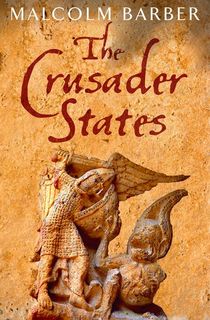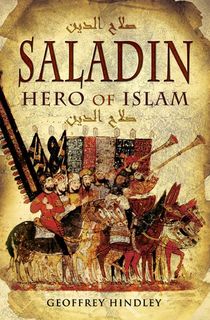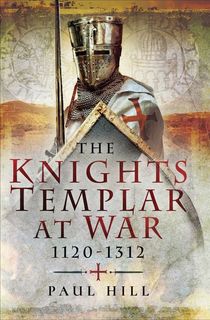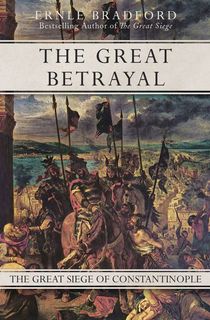When we think of the Crusades, we tend to envision knights in surcoats with scarlet crosses or think of the cheesy image of medieval culture offered us by Monty Python and the Holy Grail. The average person is tempted perhaps to either see them as meaningless wars or as a mere suppression of opposing religious ideology.
In reality, the Crusades were a series of military campaigns that were, at least nominally, less about a notion of suppression than one of longing for proximity to the sacred. And this mentality was held by both opposing sides, the Christians and the Muslims alike. Jerusalem, in particular, was considered a sacred place by all of the Abrahamic religions: Judaism, Christianity, and Islam. Jerusalem was the center of blessed memory, rich in the history of the people, and associated with major events in the lives of key religious figures.
Very early in the history of Islam, the disciples of Muhammad (570-632) overcame the Byzantine rule of Jerusalem via a relatively peaceful conquest in 638 and proceeded to establish dynastic rule. Nothing extraordinary went down for several hundred years. With the dawn of the 11th century, however, came a series of events that resulted in an upheaval of the way Muslims and Christians reacted with one another.
Most notably, when the Seljuk Turks (who were Sunni Muslims) dominated the Shi'ite Muslims who had long occupied Jerusalem, the faithful Christians of the area fell under persecution. The Sunnis, the majority sect of Islam, have long held the Shi'a sect in contempt. Theirs is a vehement conflict which dates back to a time not long after the death of Mohammad and which continues on to this day. The Shi'ite defeat at Jerusalem occurred in 1071, and it served as a turning point and a call-to-action.
In November 1095, Pope Urban II delivered a speech at the Council of Clermont. While the primary point of the council revolved around reform within the Catholic Church, Urban's address suggested and spurred on a military response to the Turkish takeover of Jerusalem. The Pope especially called for a French military move on the Holy City. It seemed all of Christendom was ready to rally forces and take to the offensive.
Related: 12 Christian History Books That Every World Scholar Should Read
The inaugural Crusade set out in 1096, and the Crusaders were successful in overtaking Jerusalem in 1099. However, more than half a dozen Crusades followed in further conflicts. Collectively, these campaigns were spattered over the decades until about the year 1291. Like all the wars of that day, they were undoubtedly brutal in their execution.
But even amid the atmosphere of confrontation and looming bloodshed, there were noble figures who stood out on both sides of this religious struggle for land control. For instance, St. Francis of Assisi, who founded the Franciscan Order, went across the battle lines during the Fifth Crusade in 1219 to speak with Sultan al-Malik al-Kamil. In the interest of peace, Francis went to share with the Sultan his Christian faith. Similarly, in 1192, it had been reported that the Muslim military leader Saladin bestowed two of his horses on his Christian adversary King Richard after hearing that the king had lost his steed. If you do some digging, you'll see these wars were not devoid of courtesy and diplomacy.
Below is a collection of suggested books that address various intricacies of the Crusades. Many of them break fresh ground on the centuries-old events and try to cast off a variety of dusty and oft ill-informed clichés.

The Crusader States
Malcolm Barber's The Crusader States explores the establishments made by the Christian knights along the Mediterranean during the Crusades, especially notable cities like Antioch and Tripoli—in addition to Jerusalem. Barber pays meticulous attention to specific aspects of the city-states such as legal authority, economic stature, and the need to defend reclaimed territories.

Saladin
If you recall, we mentioned Saladin in the overview of this article. An outstanding figure to Christians, Muslims, and historians alike, Saladin was an influential political and military leader. Geoffrey Hindley's book pays particular attention to the role the sultan played in the military strategy of the Battle of Hattin and ultimately in the downfall of the Third Crusade.

The Knights Templar at War, 1120–1312
In The Knights Templar at War, Paul Hill explores the military potential and significance of the Knights Templar order. Hill illustrates the group's involvement in the Crusades in the Holy Land but also in other wars. The book displays how the Templars influenced the medieval battlefield and history as a whole.

A History of the Crusades
The English historian Sir Steven Runciman, who “was a leading expert on the history of the Byzantine Empire and the Crusades,” was known for his most celebrated work: a 3-volume set of books examining the Crusades at great length. With each installment of A History of the Crusades, Runciman delves further along the line of the campaigns' chronology. He explores genealogies, ideologies, and the rise and fall of kingdoms.

The Crusades Through Arab Eyes
The Crusades through Arab Eyes explores the activities and reflections of Muslims involved in the medieval Crusades. Rooted in contemporaneous records, the book is authored by the talented journalist, editor, and novelist Amin Maalouf. It takes a cursory yet in-depth look at the Islamic perception of events in the Crusades and the lasting effects the campaigns have had.

The Crusades
In The Crusades: A History, another English historian, Jonathan Riley-Smith, takes a concise but contemplative look at numerous factors that were a part of the inner workings of the Crusades including theology and politics. He also offers commentary on how the Crusades are seen under a modern worldview and how the term has become reinvigorated in today's political sphere.

Crusades
Though the book doesn't claim the most original of titles, Terry Jones and Alan Ereira do justice to the historic campaigns in Crusades, examing both their legends and legitimacies. Best known for some of its visual aesthetics, Crusades was printed as a BBC production companion guide.

The Great Betrayal
Written by author Ernle Bradford, who once served as a correspondent for BBC, The Great Betrayal focuses on the effects the Crusades had on religious ties in Eurasia, how the Holy Roman Empire was crippled, and how the campaigns caused division to be sown among Christians.

The Crusades and the Expansion of Catholic Christendom 1000-1714
This book by John France, a professor at the University of Wales Swansea, has a forward-looking drive when it comes to examining the Crusades. Using the Crusades as a foundation, the book explores how the wars affected major historical movements for centuries to come.

The Crusades Controvery
Thomas F. Madden, a historian specializing in medieval studies, argues in The Crusades Controversy that Christianity was not the instigating force that led to the militant dispute between Christians and Muslims over the Holy Land. In it, Madden also pushes back on the idea that the Crusades are to blame for the modern unrest between Christians and Muslims experienced in some countries.
Featured photo: Wikimedia Commons






